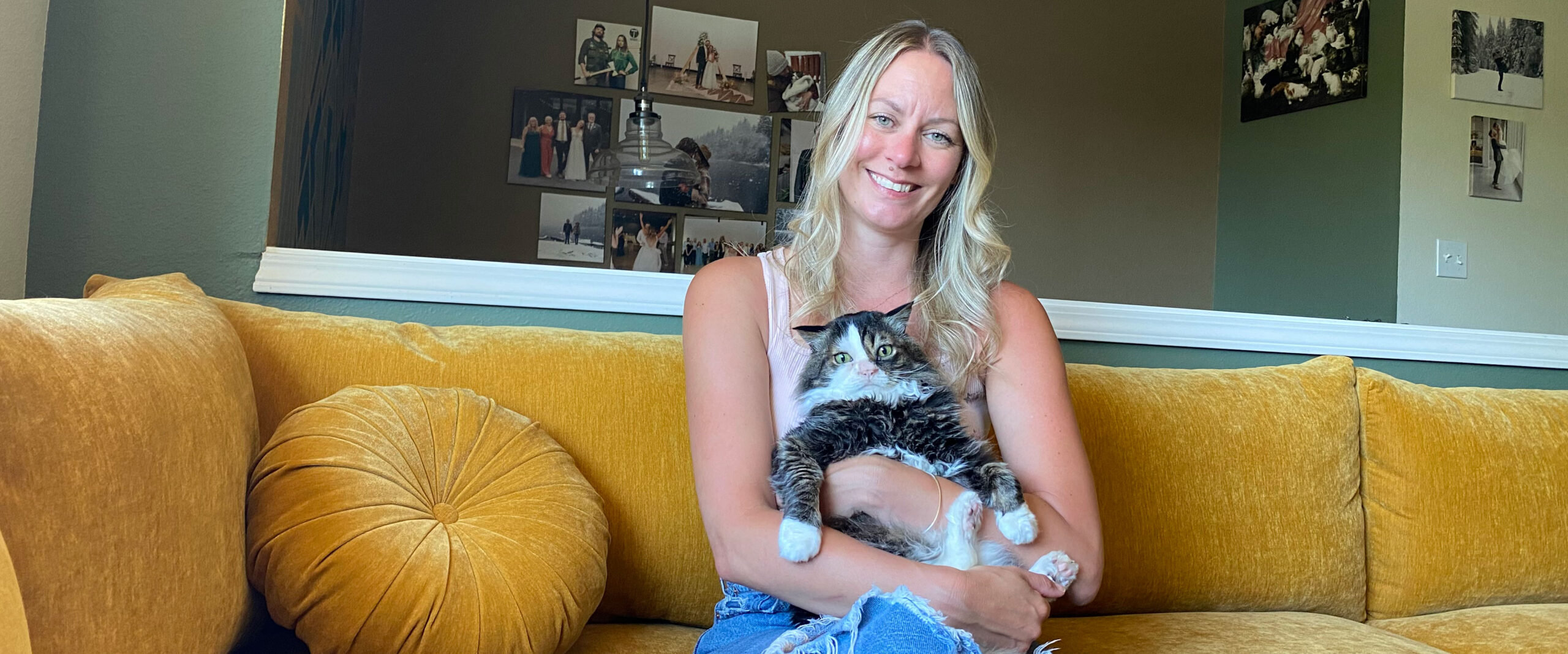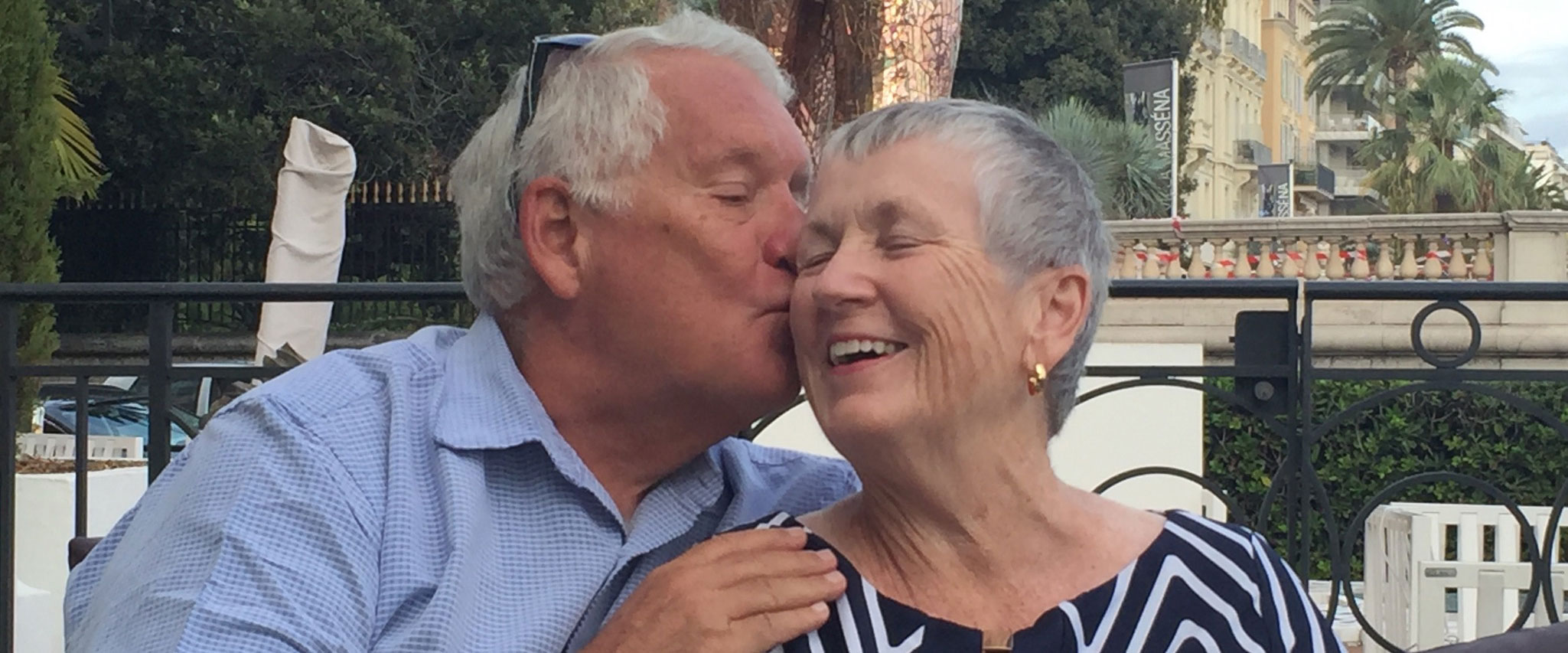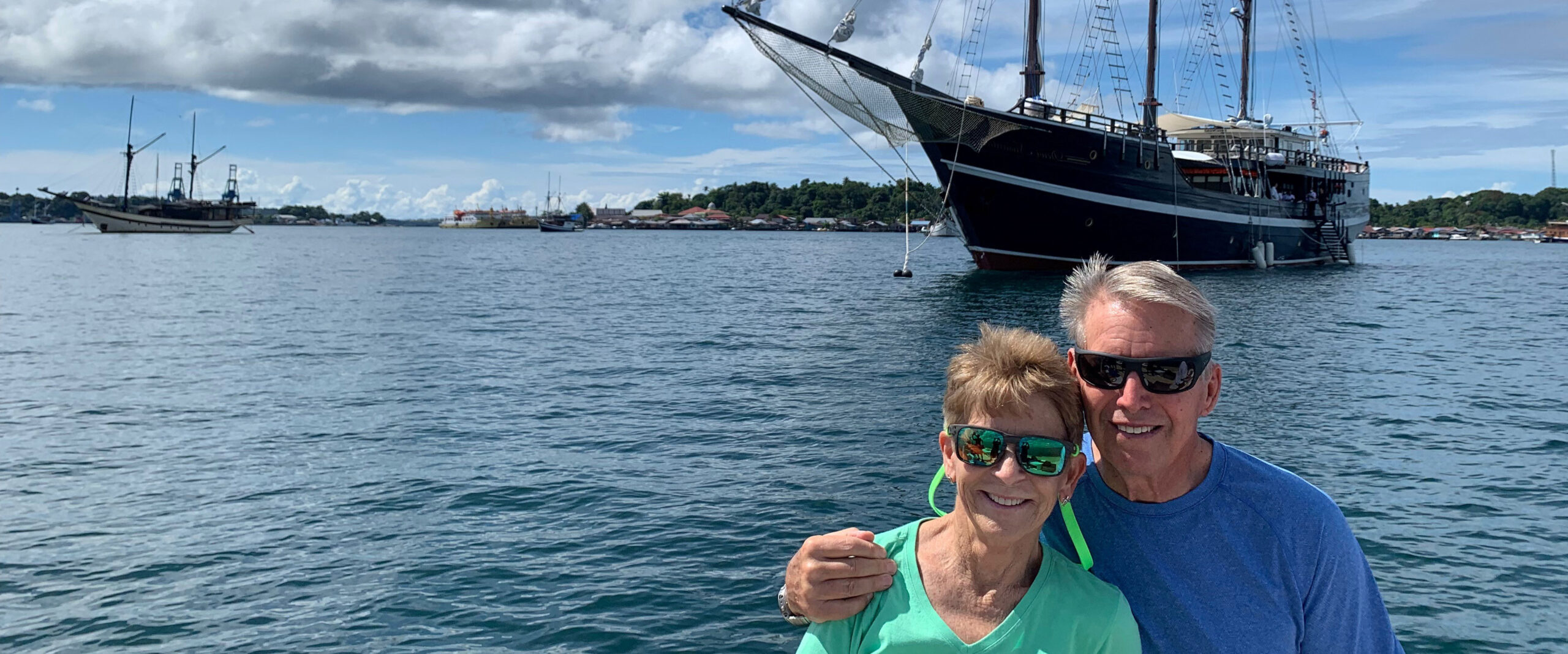By Darby Kendall
An avid runner for over a decade, Kim Steenslid knew what a good pace felt like. That’s why when Steenslid felt something wrong with her stride during a half marathon in October 2021, she couldn’t deny the signs of a larger issue.
“I couldn’t push through the race with my right leg hitting the ground early and not striking correctly,” Steenslid remembered. “I’d endured numbness off and on for seven years before this for different periods of time, days or weeks, in my legs and abdomen. ‘It will go away; this must be what turning 40 is like; I’m fine,’ I would tell myself. Then, all the signs and pain that were pointing towards multiple sclerosis couldn’t be ignored anymore.”
Steenslid was diagnosed with multiple sclerosis (MS) the following May, when an MRI and lumbar puncture confirmed her fears. After being released from Providence for her initial treatment, Steenslid transferred to the OHSU MS Center, where she has received care for her MS from dedicated fellows ever since.
“I was so scared to move over, but all the care I have received at OHSU has been amazing. First, I had Dr. Vicky Chen and then Dr. Helen Wu. Both listened and were so kind,” Steenslid said. “They were very patient with me and helped me understand the disease through my tears. I have felt heard and cared for. I really dislike — I try not to use the word ‘hate’ — MS, but I do enjoy going to OHSU.”
“I feel like with doctors in the past, I just didn’t feel heard or understood. I would leave feeling kind of silly. Every doctor that I’ve seen at OHSU, it’s always like they care.”
In November of 2023, Steenslid was selected to participate in a study run by Lindsey Wooliscroft, M.D., M.S., assistant professor of neurology and Tykeson Family Distinguished Scholar at the OHSU School of Medicine. The research, which was funded in part by philanthropy, analyzes the impacts of physical activity on MS, specifically cycling. As a long-distance athlete, Steenslid jumped at the chance for a new physical outlet.
“When I was selected to participate in Dr. Wooliscroft’s study, I was absolutely ecstatic,” Steenslid said. “Running was my therapy, and I loved it. I truly miss being able to push myself with running long distances and getting the runner’s high. The bike is the closest thing to that feeling. I haven’t been a huge biking person in my past but now I truly love it.”
Steenslid reflected that she appreciated the responsibility that came with the study, motivating her to get on the bike on days she may have otherwise skipped it. “I am so thankful that Dr. Wooliscroft showed me this experience,” Steenslid said. “I would ride while she was on the phone with me once a week during the study. She would give me reminders and say, ‘You’re doing great, keep going.’ It was so encouraging to me. Then I found out that riding the bike is awesome, and I keep it up still.”
Beyond being encouraged by her newfound hobby, Steenslid also felt supported by her doctors. With no previous knowledge of the disease, Steenslid had many questions, but her providers always made her feel comfortable asking them.
“I feel like with doctors in the past, I just didn’t feel heard or understood. I would leave feeling kind of silly. Every doctor that I’ve seen at OHSU, it’s always like they care. I didn’t expect that,” Steenslid said. “It’s been so nice, because what a weird diagnosis MS is. They’re just so patient and they explained everything and made me feel okay to ask any questions.”
Initially Steenslid kept living life as usual after her 2022 diagnosis, frequently flying for work and getting only four hours of sleep a night, as she had her entire adulthood. Then, she reached a turning point and came to her health care providers for support.
“It took me about two years to hit a breaking point. It was after last summer, because I just kept going and going. I was like, ‘I don’t have MS; I don’t have that.’ I was kind of running from it,” Steenslid said. “Then I started to get really sad about it, and I even cried in front of Dr. Wu. She recommended a few therapists to me that help people with chronic illness, and I started seeing one. That was really helpful, seeing someone who actually knew what I was going through.”
With support from her specialized care team, Steenslid has found new ways to thrive while navigating life with her MS diagnosis. Though she’s no longer on a plane three times a month, she’s traded flying every week for enjoying a good bike ride instead.
“I practice gratitude every morning, thinking of three things I am thankful for. I always start with my husband, my cat Piper, and the third one changes daily,” Steenslid said. “I was always too fast, too serious. With the diagnosis and living with MS, I’ve really learned to slow down and get more rest. I appreciate the smaller things.”




